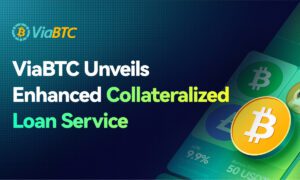The most common talked about topic in the cryptocurrency world is price. The sheer level of twitter accounts alone giving TA advice is quite staggering with charts and predictions abound. Now although there are many great accounts of this nature to be found, the topic is somewhat saturated and shows cryptocurrency as one sided. It is one sided because it only covers the trader and speculative nature of crypto eclipsing the larger price picture as well as the real world value. It also takes away from the initial beauty of cryptocurrency. That it is peer to peer, inclusive and without barriers. The 2017 all time highs made millionaires, but it also made crypto seem just like a simple get rich quick scheme (hello pump and dump).
What is not covered enough regarding price and investment returns is that of the overlooked heroes of blockchain and the necessity of bulk trades. Our most underappreciated members of the space regarding price are our mining and masternode communities. Without them there is no validation, no security and no transactions! When the public do hear about these groups it usually goes hand in hand with something about them causing the planet to melt down.
Before someone screams but they get paid for it, they are no hero! It is true, there are benefits to securing the chain but at a large cost. The miner and masternode communities always have to offset costs of electricity, hardware, time and effort. With centralised exchanges as the primary option to cash out into fiat they are posed with a huge problem come payday.
Until electricity companies and hardware vendors start accepting their chosen crypto as a valid payment method they will always have to cash out into fiat. In these early days of cryptocurrency, adoption is still a slow uphill struggle and will take a long time to see that solution put in place. If a miner places his coins, especially low cap ones, on a centralised exchange the price will drop. Coinmarketcap will register that and the whole trading community will see it giving a knock on effect to any other listed exchanges. Similarly the same problem applies to those staking their coins or even those wanting to just get on and buy a large enough holding to become a masternode in the first place!
Therefore centralised exchanges have a negative impact on their investment and smaller retail investors too because even if you are holding a particular coin and not staking or mining you may end up with a skewed fair price value as a result of the above.
So what can be done…? Hodl until change comes? That doesn’t seem fair in the slightest because not taking even profits into account they still have to keep the lights on! For it to be a sustainable business, at least as a passive income model, options are needed to sell and maintain value thus securing the blockchain and the token price so everyone wins.
The current setup with centralised exchanges has many limitations in my opinion. Honeypot dangers, third party KYC verification’s and opaque business models as well as extortionate listing fees and withdrawal issues. You are at the mercy of their whims and have to trust them with your hard earned assets. Yes they do serve a purpose for the day trader and most people in countries where USD/GBP/EUR are the main fiat pairs but it is a model that excludes a large demographic of the world. Adoption can only be brought about by more inclusion to everyone worldwide. More inclusion goes hand in hand with more options.
Thankfully the solution is quite simple, opt out of centralised exchanges and trade OTC. Over the counter trades with peer-to-peer exchanges are the perfect setup for anyone who earns cryptocurrency to buy and sell in bulk as well as smaller sized retail trades for people the world over where the limiting fiat pairs are an issue.
Due to these trades being direct & peer-to-peer (seller to buyer and vice versa) there is no order book. No order book means coinmarketcap cannot pool the data and the price does not get pushed either up or down in the same way. This safeguards the token value and allows for direct fiat payment to the seller in a way they choose. Peer-to-peer offers the freedom of choice that a centralised exchange cannot. If you wanted to receive payment even in gift cards or to a specific bank for a specific fiat type you can do so.
Arguably peer-to-peer exchanges have a model that predates the centralised order book, true. Trading one on one goes right back to time immemorial. However, merging this with the modern escrow system and smart contracts pushes it to the future and changes the landscape of cryptocurrency by levelling out the playing field.
The cryptocurrency space desperately needs the bulk trader to be catered for so they can have their earnings protected as well as retail investors. Both parties need to win for an even dispersal of ROI. More adoption of trading in this way will also push down the most nefarious of groups — the pump and dump schemers!
Earning cryptocurrency and then buying and selling in bulk has been difficult up to this point. The most famous peer-to-peer trading platforms have only dealt with Bitcoin. This is great but the landscape is evolving and changing constantly. What about cryptocurrencies like Dash, Vechain or Waltonchain. Who caters for low cap gems, or other cryptocurrencies that enable a passive income or require large volume orders?
For another example of earning passively with cryptocurrency like mining or having a masternode there exist other options like the golem project that are pertinent to this point. With Golem the system is setup to allow anyone to earn by sharing idle processing power. This provides a real world solution for things like research projects that need large amounts of computational power with a decentralised sharing of the work load. For a large populace in areas where $50 is a months wage, this has the potential to change their standard of living drastically. This is because all you need is a minimal setup on a laptop to get going. Projects like this cater to those who cannot build a mining rig as you first need the technological know how but also up front cash. For a masternode as well there is a level of knowledge required to setup (although projects like Bulwark for example are addressing this to become much easier). Now this is not to denigrate the communities I championed above as heroes, but it is here to illustrate the bulk trading problem. One that over time I believe will become more of an issue.
I say this because with projects like Golem the validator on the gnt chain is the person who is doing the processing. They will be able to earn GNT tokens for their time and computing power with something as simple as a laptop. The requestor is the one who is asking someone to do a specific computational job. This has huge potential as a model for other new projects in bringing real difference to the world and another avenue for someone to earn cryptocurrency like with mining or masternodes.
Bulk buying or selling will become more commonplace and more necessary. When a large order from a company goes through a centralised exchange for GNT or Vechain or any other utility token this will drastically affect the price. Their book keeping will also be a nightmare as they will have to most likely convert to BTC or ETH first before getting the token they need so they have to add to accounting records all their trades. When the validator in Golems case wants to cash out, they have all the hurdles to go through of KYC and then exchanging back and forth into numerous fiat currencies or cryptocurrencies paying fees all the way. For those wanting to and or already running masternodes and mining rigs these same barriers apply. It is too convoluted, time consuming and far less empowering to everyone involved.
Cryptocurrency trading in bulk is only going to become more and more commonplace as projects and their products grow. As these tokens and project grow so do the masternode and mining communities with ROI and payouts becoming higher and higher, it is all intertwined. Protecting the coins price is in the best interest for all parties involved. As coin price goes up so does the masternode and miners ROI.
With POS becoming more commonplace masternodes will begin to emerge at a greater scale. To get on board with a masternode a large purchase of coins is needed, the trader might be hesitant to place such large orders out there especially for the lower cap coins. The project gets stunted from the get go and people are quick to merit the project only on its current coinmarketap value. This negative effect can also limit new investors to the project as it gives that skewed fair market value price I mentioned. This is a disheartening scenario to be in.
With all of that being said thankfully there exists now for these emerging markets access to fair, decentralised peer-to-peer trading exchanges involving many cryptocurrencies not just Bitcoin. The well known localbitcoins has catered well to the Bitcoin community. Having said that there are newer breeds of peer-to-peer trading platforms such as payfair and localcoinswap using a similar model but modernised with further token inclusion and community involvement further decentralising the platforms with voting rights and shared profits.
As the space grows so too will these marketplaces and I do expect to see more added over time. Ones that support masternode tokens, the bulk mining traders and have high end security in place such as cold storage wallets which are easy enough for anyone to use. This will further the ease of joining the cryptocurrency revolution especially as the technology and startup gets easier and more simplified. Like the miners and masternode communities, peer-to-peer trading platforms are unsung heroes creating a support network to our most valuable communities. They should be supported and used more as an alternative to centralised exchanges. By doing so we take back the control and gain the ability to secure our investments and earn a profit. With your privacy in mind and control over your financial rewards, buying and selling peer-to-peer is what I like to think of as the wholesaler platform. The cryptocurrency you are supporting and using as a means of passive income is peer-to-peer. Your exchanges should be too. So fire up those rigs and start trading P2P now!
Author: DZ
Writer and community manager for https://localcoinswap.com
The first community owned P2P cryptocurrency exchange for altcoins and bitcoin.
Twitter: @ DZdadathome
email: dz@localcoinswap.com
blog: https://blog.localcoinswap.com



































